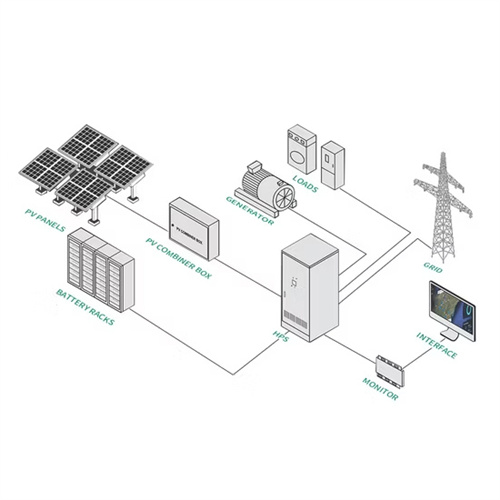About Un 3090 lithium metal batteries
UN3090 is a classification for lithium metal batteries that are non-rechargeable and not packed with or installed with the equipment1234. Lithium metal batteries are classified as Class 9 material, or "miscellaneous dangerous goods"2. The specific UN regulations covering the shipment of these batteries are as follows: UN 3090, Lithium metal batteries (shipped by themselves)2. Lithium metal batteries UN3090 are acceptable to dangerous goods locations only3.
As the photovoltaic (PV) industry continues to evolve, advancements in Un 3090 lithium metal batteries have become critical to optimizing the utilization of renewable energy sources. From innovative battery technologies to intelligent energy management systems, these solutions are transforming the way we store and distribute solar-generated electricity.
When you're looking for the latest and most efficient Un 3090 lithium metal batteries for your PV project, our website offers a comprehensive selection of cutting-edge products designed to meet your specific requirements. Whether you're a renewable energy developer, utility company, or commercial enterprise looking to reduce your carbon footprint, we have the solutions to help you harness the full potential of solar energy.
By interacting with our online customer service, you'll gain a deep understanding of the various Un 3090 lithium metal batteries featured in our extensive catalog, such as high-efficiency storage batteries and intelligent energy management systems, and how they work together to provide a stable and reliable power supply for your PV projects.
6 FAQs about [Un 3090 lithium metal batteries]
Does a lithium battery Mark have a UN number?
Yes. The mark may bear all applicable UN numbers, e.g. UN 3091, UN 3481, to identify that the package contains lithium metal batteries packed with or contained in equipment and lithium ion batteries packed with, or contained in equipment. J. What are the requirements for the telephone number on the lithium battery mark?
What is a lithium battery?
Lithium Battery – The term “lithium battery” refers to a family of batteries with different chemistries, comprising many types of cathodes and electrolytes. For the purposes of the DGR they are separated into: Lithium metal batteries. Are generally primary (non-rechargeable) batteries that have lithium metal or lithium compounds as an anode.
Can a damaged lithium battery be transported on a plane?
Damaged lithium batteries are forbidden from air transport. See page 06 of this guide for information on damaged batteries. These shipments are forbidden to be transported as cargo on passenger aircraft. 2 batteries. n/a.
Can a lithium battery be shipped with other hazardous materials?
Lithium metal cells and batteries must not be packed in the same outer packaging with other hazardous materials. A shipment that exceeds the quantity limitations in the table, the overpack limit, or consignment limit, must be shipped as a fully regulated lithium metal battery (See Guide 05 for provisions).
What are the requirements for a lithium battery?
The lithium batteries must be of a type that have successfully passed the UN38.3 tests and contain the necessary systems to prevent overcharge and over discharge between the batteries.
Are lithium batteries rechargeable?
Lithium batteries fall into two broad classifications; lithium metal batteries and lithium ion batteries. Lithium metal batteries are generally non-rechargeable and contain metallic lithium. Lithium ion batteries contain lithium which is only present in an ionic form in the electrolyte and are rechargeable.
Related Contents
- 2 lithium metal batteries
- Do lithium ion batteries contain lithium metal
- Un number for lithium metal batteries
- Are lithium batteries worse than fossil fuels
- Do lithium polymer batteries explode
- Cost of lithium batteries for golf carts
- Lithium ion vs lead acid golf cart batteries
- Lithium batteries vs regular batteries
- Rechargeable lithium batteries aa
- Recycle lithium batteries best buy
- Magnets and lithium ion batteries
- Difference between nicad and lithium ion batteries


